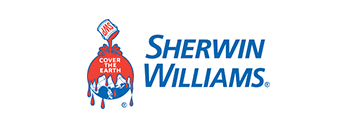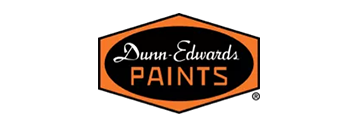FAQs
Parker Painting
Have a painting-related question? We have the answer. Check out these FAQs and give us a call today for more information!
Should I choose oil or latex paint to paint my house?
Oil-based paints used to be the go-to choice for surfaces prone to mold or mildew, such as exteriors and bathrooms. However, they require warmer conditions for proper application. Parker Painting recommends considering latex paint for your next project because modern latex paints and primer combinations have become just as durable as oil-based options. Latex paints can be applied in cooler conditions and are becoming the preferred choice as oil-based paints are phased out by many manufacturers. Choosing latex paint also makes future updates simpler and more convenient. When selecting painting contractors, be sure to work with professionals who can recommend the best paint type based on your local climate and the surfaces involved.Is there a difference between hand-brushed and sprayed paint?
At Parker Painting, spraying is often used to create a "no brush stroke," flawless satin finish that looks very nice on surfaces such as new cabinets. Hand brushing a new color may not give you the complete, even coverage you are looking for on high-end surfaces. A spray gun will give you full coverage and a more even coating for your new paint color. Save hand brushing for updating trim and molding. For interior walls, spraying is impractical, so roller brushes are the preferred method. When hiring painting companies, be sure to discuss the finish you want to achieve and the best application method.What does VOC mean?
VOC stands for volatile organic compounds, chemicals found in some paints. At Parker Painting, we don't recommend the use of high VOC paints on interior surfaces. They have a strong and unpleasant chemical smell. Volatile organic compounds in paints, varnishes, adhesives, and other products are still common but no longer necessary due to advances in the production of house paint. Walls and other surfaces coated in high VOC paint will give off gas chemicals into the air that can cause indoor air quality and health problems. Most reputable painting contractors use low VOC paints to ensure safer, healthier homes. Low VOC paints are high-quality and provide excellent coverage.Are more expensive paints better?
Yes. High-quality paint colors are richer and more vivid. At Parker Painting, we recommend high-quality paint because it is less likely to fade from UV light exposure. Premium quality paint produces better results and requires fewer coats. When choosing painting companies, opting for those who use premium paints can improve the longevity and appearance of your paint job.Does the existing old paint on my house need to be removed before it can be repainted?
No, if the existing paint is in good condition, with small spots, stains, and limited damage, you can repaint the walls without removing all the existing paint. However, priming first is always recommended to make sure the old color does not bleed through to the new color. Paint that is peeling or cracking should be scraped off, and holes or imperfections patched and sanded before painting. Professional painting contractors typically inspect surfaces thoroughly to determine the best prep work for a durable finish.Does my whole house need to be primed before being painted?
For better results, priming your home's walls before painting is advisable—especially if the new paint color is significantly different from the old one. Areas that have been patched and sanded should definitely be primed first. Painting companies include priming in their preparation process to ensure even color and longer-lasting coverage. According to IBISWorld, the market size of the Painters industry in the U.S. reached $44.1 billion in 2024, reflecting the importance of thorough preparation practices among professional painting contractors.What is elastomeric paint?
Elastomeric paint is designed to protect masonry surfaces. These coatings help protect your stucco or brick from wind-driven rain to create a waterproof system. When selecting painting contractors, ask if they offer elastomeric paint options for durable masonry protection.How long does it take for new paint to dry?
In our experience, latex paint typically dries in about four hours, while oil-based paint takes six to eight hours. It’s important to let the paint dry completely before applying a second coat. According to our team, paint that remains sticky after 24 hours is defective and should be primed or removed before repainting. Experienced painting companies will ensure proper drying times for optimal results.What are the benefits and problems with epoxy floor coating?
Epoxy floor coatings are economical, durable, and easy to maintain. They resist chemical damage, which is why they are popular for garage floors. However, some individuals note that epoxy floors do not muffle walking or contact noise and feel cold like tile underfoot. They also don’t provide any non-fatiguing benefits, and imperfections in the underlying floor may appear as ripples once the epoxy is applied. Many painting contractors offer epoxy coatings, so choose a company familiar with these pros and cons.When should you not epoxy a garage floor?
Epoxy can have adhesion problems when applied in very cold temperatures or in areas with high humidity and moisture, such as basements or bathrooms. Poor adhesion can cause the epoxy coating to crack and peel. Choosing knowledgeable painting contractors like Parker Painting can help you select the right solution for your space.


